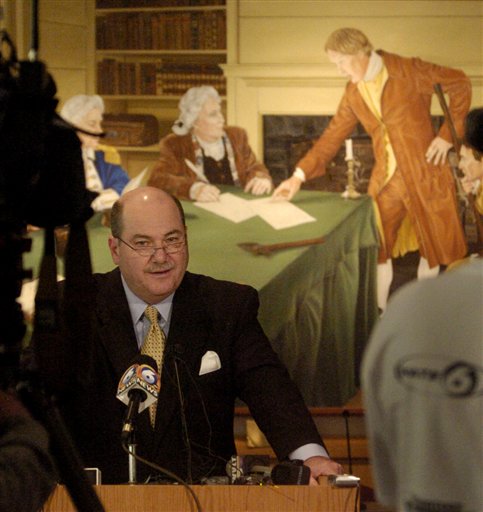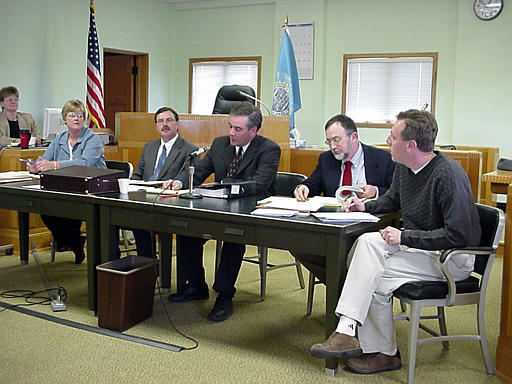Open meeting laws, also called sunshine laws, require that, with notable exceptions, most meetings of federal and state government agencies and regulatory bodies be open to the public, along with their decisions and records.
Although open meeting statutes are closely related to the Freedom of Information Act of 1966, no national minimum standard defines “openness,” and it is not mentioned in the First Amendment. Much of the litigation over open meeting laws has centered on whether particular exceptions justify closing certain meetings of government bodies.
Open meetings compatible with principle of informed citizenry
Open meeting laws are a relatively new development. They ensure the public’s right to access to the internal workings of government at all levels. This “right” cannot be traced back to America’s common law tradition with England or to practices in place when the United States was founded.
Until the mid-1800s, sessions of the English Parliament were closed to the public, and attempts to publish its debates in the press were punishable offenses. In America, sessions of the Continental Congress and the Constitutional Convention were held in secret.
Although neither the Constitution nor the Bill of Rights requires public access to government meetings, the principle is entirely compatible with the concept of popular sovereignty and an informed citizenry. The freedoms of speech, the press, and the right to petition the government in the First Amendment all presuppose a “right to access.” To criticize or support a government policy effectively, citizens must be informed of the reasons for that policy.
All states had enacted open meetings laws by 1976
In the 1950s, even before Congress enacted the Freedom of Information Act, the American Society of Newspaper Editors had formed the Freedom of Information Committee. It pressured state legislatures to enact “open meetings” laws as part of a general move toward more responsive and responsible government.
By 1976 all of the states and the District of Columbia had passed sunshine laws that created a legal right to (limited) access.
In general, most statutes require public bodies to meet and deliberate in public.
Although these laws guarantee that the public and the media can attend, they do not guarantee the public’s right to speak.
‘Meeting’ defined by number of participants and purpose
What constitutes a meeting is usually defined by its purpose — to perform public business (social gatherings are not considered meetings) — and the number of participants—a quorum or majority. All such meetings, unless specifically and legally exempted, are presumed to be open to the public, and agencies are required to give advance notice of the date, time, place, and agenda.
Exempted meetings are normally held in closed executive session and may be devoted to such things as personnel issues, ongoing investigations, collective bargaining, conferences with agency attorneys, the acquisition or sale of public property, or a debate among members of the agency prior to a decision.
Nevertheless, the agency must compile minutes or transcripts, and formal action must be taken in a public session. Both federal and state legislatures have the discretion to enact statutes to change or add exemptions at any time.
States clarify open meetings laws to address email and chance meetings
Faced with the technological advances of the information age and haphazard business practices, states are finding that they must reconsider their open meeting statutes.

Knox County, Tenn., law director John Owings speaks at a news conference Friday, Oct. 5, 2007, in Knoxville, Tenn. A judge nullified a dozen appointments to elected offices in Knox County on Friday over violations of the state Open Meetings Act and permanently barred the commission and its members from violating the act in the future. (Knoxville News Sentinel, J. Miles Cary. Reprinted with permission.)
Violations have ranged from conducting public business during innocent chance meetings to purposely bypassing the public notification requirement by using serial telephone calls or e-mails to speak with fellow board or agency members. In either case, technically the attendance requirement that triggers an open meeting is not present under most state laws, but the intent or spirit of the law is being ignored.
To clarify the meaning of “meeting” and to address today’s virtual or electronic communications capabilities, several states have relied on the analysis provided by the Washington state appeals court decision in Wood v. Battle Ground School District (2001).
It specifies that regardless of the setting, a meeting is defined by the intent and substance of the communication among public officials. If that intent is to discuss information and views or influence public business or policy, the communication becomes a meeting under the law and the provisions of the open meeting law apply.
If, however, the information is “passive,” with no real intent of influencing public policy, the communication does not trigger the legal requirement for an open meeting.
In the e-mail context, courts have focused on whether there was simultaneous communication akin to exchanges at a real-world meeting between officials.
For example, in Beck v. Shelton (Va. 2004), the Virginia Supreme Court determined that the exchange of e-mails between city council members and certain members-elect did not constitute a meeting because “the e-mails did not involve virtually simultaneous interaction.”
Today, in most states intent is central to determining the applicability of the open meeting statutes.
Alex Aichinger is a former professor at Northwestern State University in Louisiana. He has also contributed to American Constitutional Law Volumes I and II. This article originally published in 2009.

